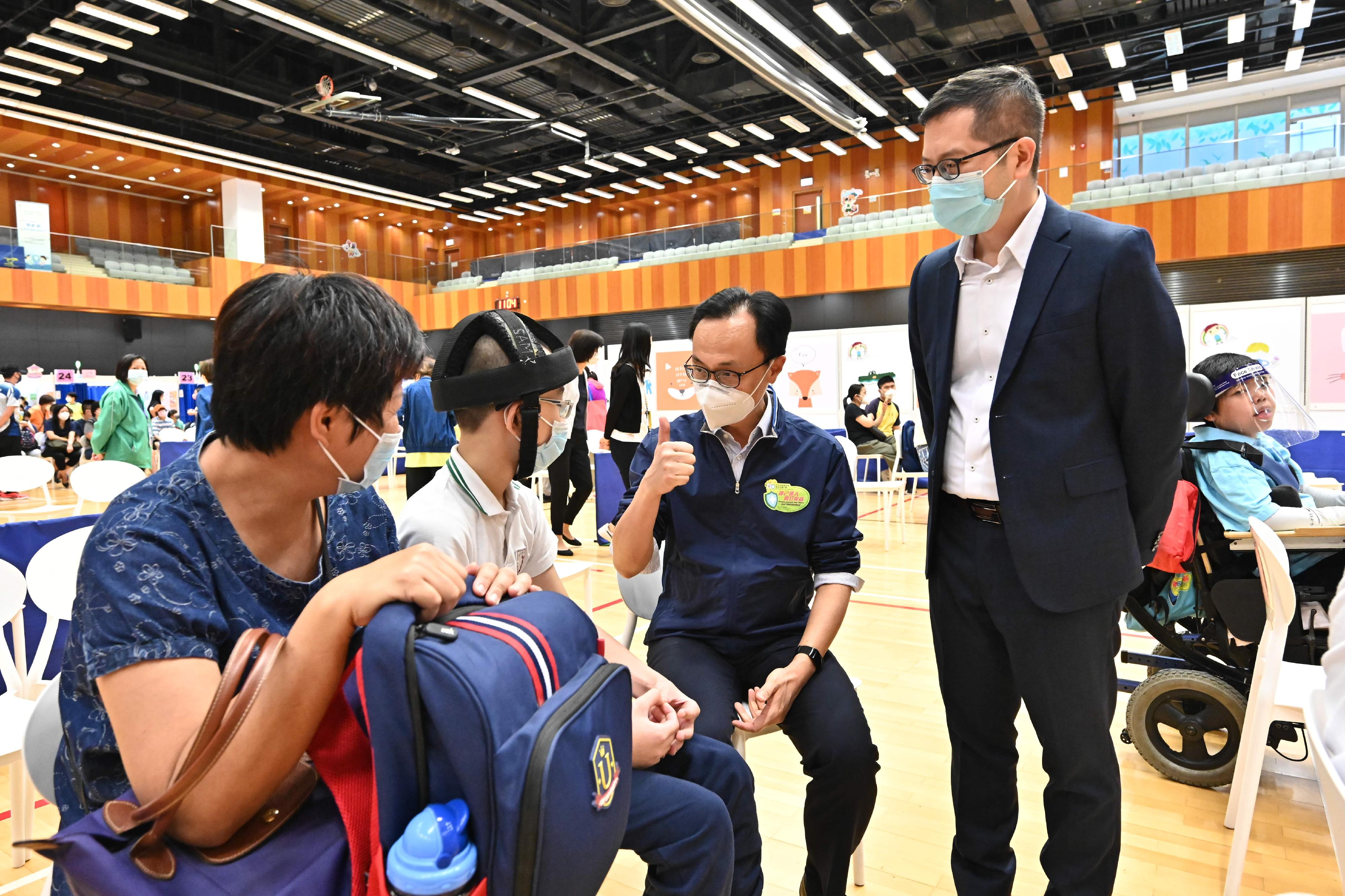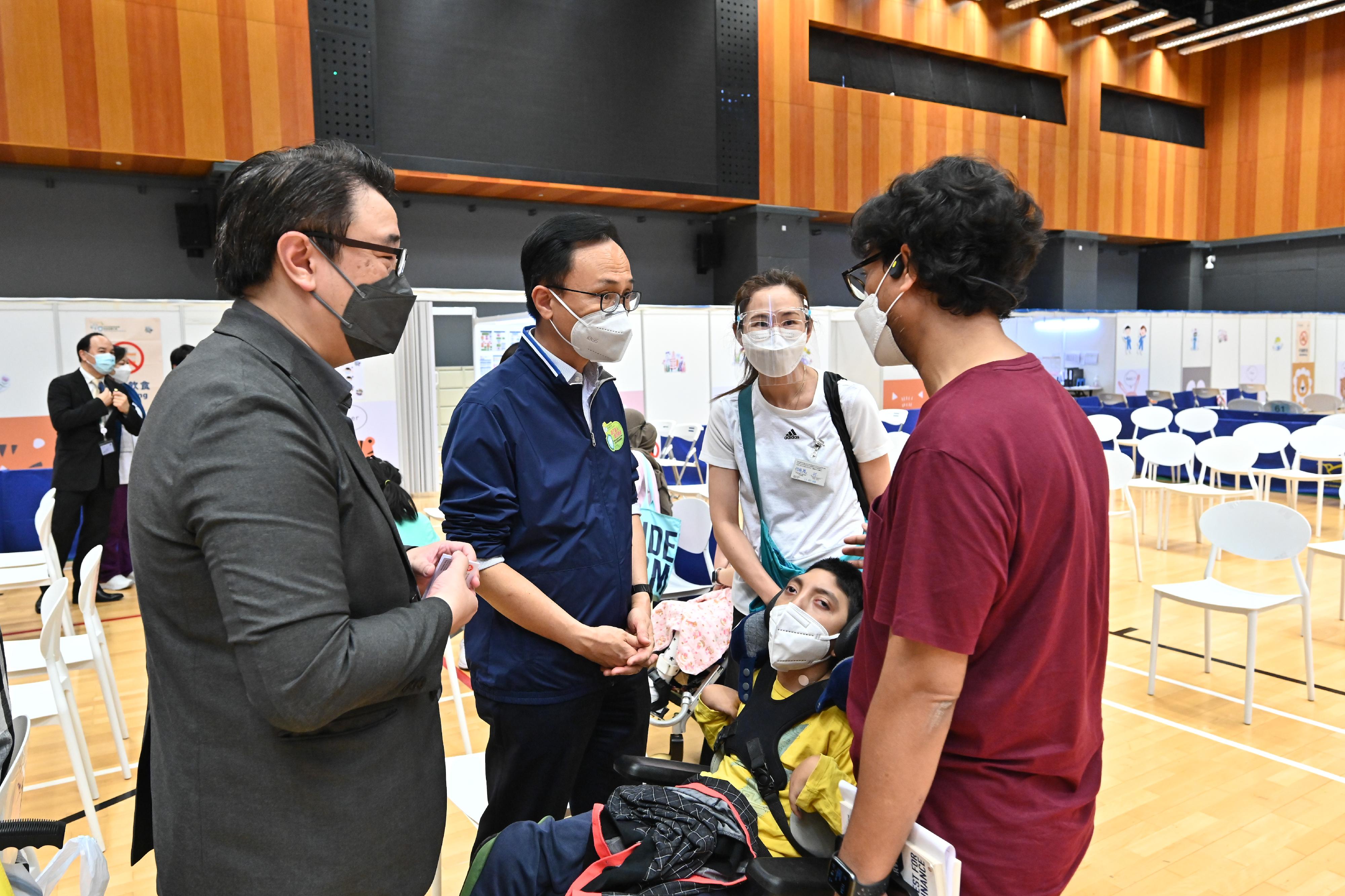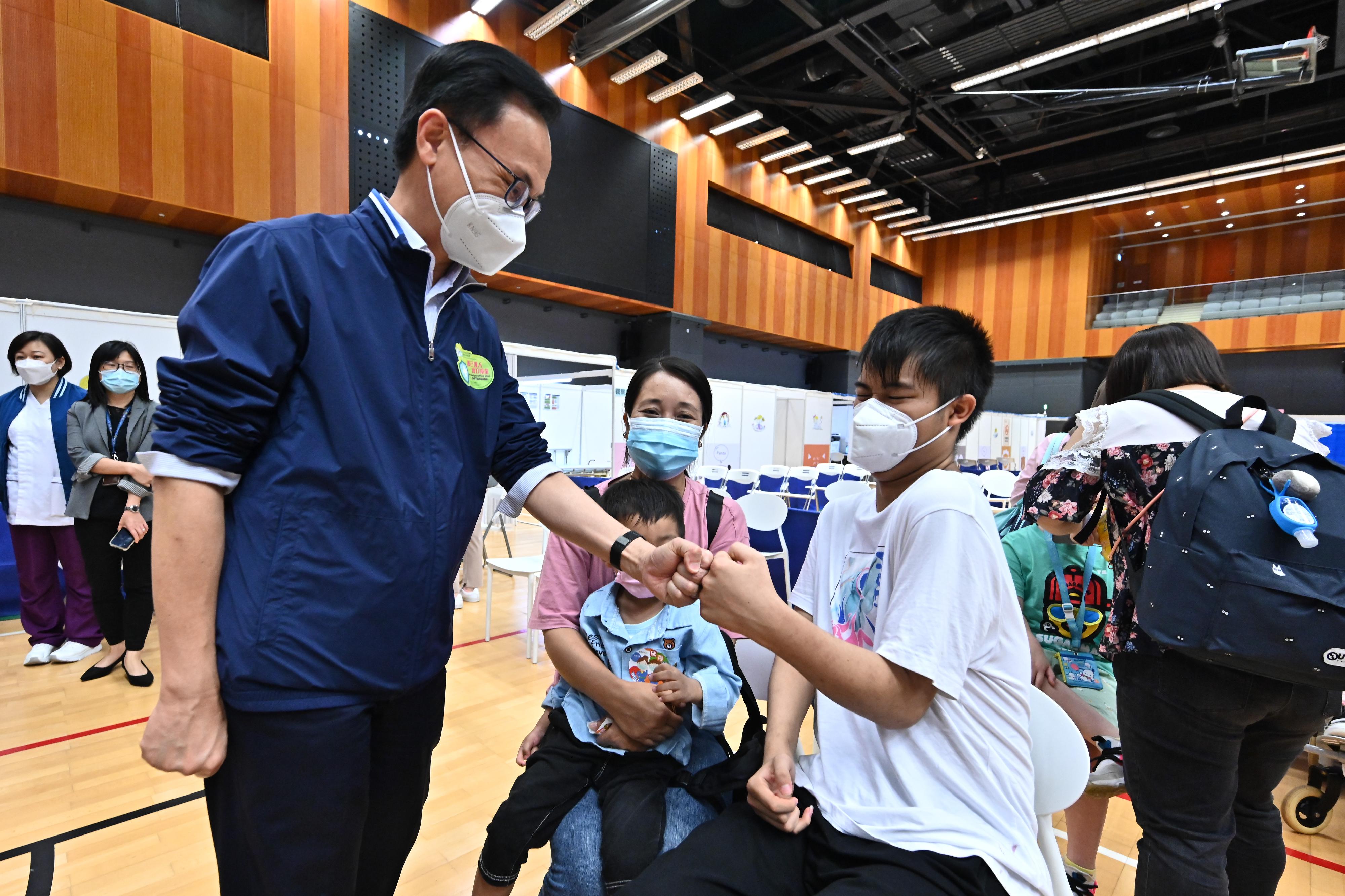Following is a question by Dr the Hon Kennedy Wong and a written reply by the Secretary for the Civil Service, Mr Patrick Nip, in the Legislative Council today (April 27):
Question:
The Chief Executive indicated in the middle of last year that the Government would soon sign agreements on the taking up of temporary positions for exchanges (agreements) with the government of the Guangdong Province and municipal governments such as the Shenzhen Municipal Government, so as to allow civil servants to take up temporary positions on the Mainland for exchanges, thereby enabling them to gain a deeper understanding of the work and operation modes of the provincial and municipal governments on the Mainland. Also, the Government welcomes Mainland civil servants to come to Hong Kong for exchanges. Moreover, the Government also signed agreements with the governments of places such as Beijing and Shanghai earlier on. In this connection, will the Government inform this Council:
(1) of the dates on which it signed agreements with the governments of Beijing and Shanghai, and when it will sign agreements with the governments of the Guangdong Province and the Shenzhen Municipality; whether it has plans to sign agreements with more governments of different provinces and municipalities in the next three years;
(2) as it has been more than half a year since the release of the news that the Government is going to sign agreements with the governments of the Guangdong Province and the Shenzhen Municipality, but the Government has not yet announced the detailed arrangements under the agreements, of the reasons for that;
(3) of the ranks of those Hong Kong civil servants to be assigned to take up temporary positions for exchanges, and the considerations in this respect; whether such ranks will include newly recruited and seasoned Administrative Officers of government departments, as well as the permanent secretaries and deputy secretaries of policy bureaux;
(4) of the detailed arrangements for the aforesaid (i) Hong Kong civil servants taking up temporary positions on the Mainland for exchanges and (ii) Mainland civil servants taking up temporary positions in Hong Kong for exchanges, including the timetables and the annual numbers of participating civil servants; and
(5) of the expected benefits of the taking up of temporary positions for exchanges, including its positive impacts on and help for the civil service system and governance?
Reply:
President,
The civil service is the backbone of the Hong Kong Special Administrative Region (HKSAR) Government. It plays a vital role in implementing the principle of "one country, two systems". As the HKSAR is part of the country, it is important for civil servants to enhance their understanding of the latest developments of the Mainland and the relevant national strategies and plans. The Civil Service Staff Exchange Programme, jointly organised by the Civil Service Bureau and the Mainland municipalities, constitutes part of the work in this area. Under the programme, officers from Hong Kong and the Mainland are attached to each other's side to share experience and expertise, better understand each other's structure, regimes, policy and operation, foster networking and communication, and gain first-hand experience of the host city's latest development.
The Government's consolidated reply to the various parts of the question is as follows:
Since the launch of the Civil Service Staff Exchange Programme, about 380 Mainland civil servants and about 140 Hong Kong civil servants have participated in the programme. Participants from Hong Kong are officers on Master Pay Scale (MPS) Point 45 or above (or equivalent) while the Mainland participants are mostly at division director or deputy division director level. The Mainland municipalities which participated in the programme in recent years included Beijing, Shanghai, Chongqing, Hangzhou, Wuhan and Changsha.
The exchange lasts for about four weeks for each round. The themes are determined with reference to the nature and needs of the participants' work. Areas covered by past exchanges included infrastructure development, town planning, traffic management, public housing, health and food safety, environmental protection, trade and commerce, information technology, culture and arts, etc. The participants would learn more about the operation of the host agencies through briefings, training, meetings, discussion forums, experience sharing sessions and site visits, etc. The participants would not exercise substantive power in the host agencies.
The Chief Executive of the HKSAR and the then Governor of Guangdong Province, Mr Ma Xingrui, signed the 2020 Work Plan of the Framework Agreement on Hong Kong/Guangdong Co-operation on October 30, 2020. One of the measures is "pressing ahead with the extension of the Civil Service Staff Exchange Programme to cover the nine municipalities in the Pearl River Delta, and continuing to organise various types of the exchange activities" (Item 41). The programme targets at civil servants on MPS Point 45 or above (or equivalent) including officers from the Administrative Officer, Executive Officer and various professional grades. Extending the Civil Service Staff Exchange Programme to cover the Mainland municipalities in the Greater Bay Area (GBA) will provide Hong Kong civil servants with the opportunity to experience more deeply the development of the GBA municipalities, so as to enable them to play a more active and vital role in pressing ahead with their respective areas of work.
The participation of Mainland municipalities in the programme is under the overall co-ordination of the Hong Kong and Macao Affairs Office of the State Council (HKMAO). In the past two years (2020 and 2021), owing to the epidemic, all exchange activities in the Mainland had to be cancelled. Under the co-ordination of the HKMAO, the Government is actively preparing the staff exchange programme for 2022-23 and pursuing discussion with the relevant Mainland authorities on the details. Specific programme arrangements are pending confirmation. The Government looks forward to launching, if circumstances allow, the exchange activities as soon as possible. The term "serving temporary posts" (「掛��) carries a specific connotation in the Mainland and may not be very applicable to the arrangement of mutual staff exchanges between the HKSAR Government and the Mainland municipal authorities. Thus, the programme has all along been named the "Civil Service Staff Exchange Programme".
The feedback of officers and departments participating in the programme has been positive. They consider that the programme has enhanced mutual understanding and networking conducive to future communication and co-operation. Participating officers from both Hong Kong and the Mainland have found the programme inspiring and useful to their concrete understanding of the management strategy, regulations and codes, and working culture of the government authorities of the other side.



